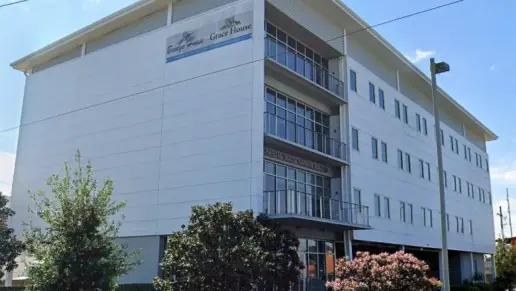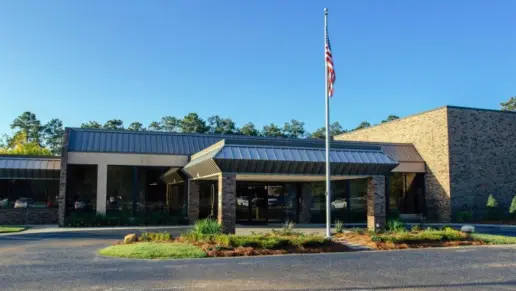The facility is very clean, the staff is great, the priority for these people is getting their patients back to their normal life, free of drugs. Victory Addiction Recovery Center truly save lives, I can't express just with words what this place did for me, I will forever lo ...
About Victory Addiction Recovery Center
Based in Lafayette, Louisiana, Victory Addiction Recovery Center provides single source mental health and substance use disorder treatment services. What sets their approach apart is the combination of keeping in mind the person as a whole body, mind and spirit and helping with individual needs. A large spectrum of treatment pathways including inpatient and outpatient programs offer the level of care necessary for recovery at Victory.
The inpatient program offers a controlled atmosphere for people who require intensive assistance to stop using. This is the best option for anyone needing medical detox, or who has a mental illness that co-occurs with substance use. Residential treatment is ideal due to its 24 hour clinical care availability and monitoring.
This clinic is situated in a secluded area and offers clients an escape from the bustle of daily life and a chance to dedicate their energy purely to the healing process. The center provides modern, clean and professional facilities that serve to elevate the therapeutic environment that is essential for comfort and safety, especially in recovery.
From troubled professionals to corporate executives, the Professionals and Executives Program assists individuals with significant career and life stressors including doctors, lawyers, business executives and other professionals from harm’s way at the hands of drugs. The program is designed to specifically address the challenges this demographic faces including career related stress management, confidentiality and restoring professional standing. Treatment gets started with an individualized assessment and incorporates evidence based therapies that align with professionals’ lifestyles and responsibilities.
The program offers individual counseling, group therapy and customized services including work life balance, stress management and rebuilding trust in professional relationships. Associates are offered a rigorous level of treatment while still allowing for the ability to keep discretion and receive the necessary treatment, focusing on re-integrating into demanding careers whilst maintaining sobriety.
Several treatment focuses set them apart, Family Week being one, allowing families to engage in the recovery process with their loved ones. Family Week provides education, therapy and bonding activities to enable families to be empowered to support recovery and heal relationships that were impacted by addiction.
A second distinguishing feature is the Trac9 Relapse Prevention Program, a year long aftercare program that helps clients stay sober after completing treatment. This extended support is especially beneficial during the difficulty of early recovery. They also feature a Veterans Program to help with the unique struggles of those who have served in the military, with expert knowledge and care.
Victory is also strong on alumni support. It has an active alumni program that encourages community and relationship building through hosting events and support networks. To further facilitate connection, engagement and support, Victory has created an alumni social media platform designed specifically for its graduates in the app Cared For.
Latest Reviews
Rehab Score
Gallery

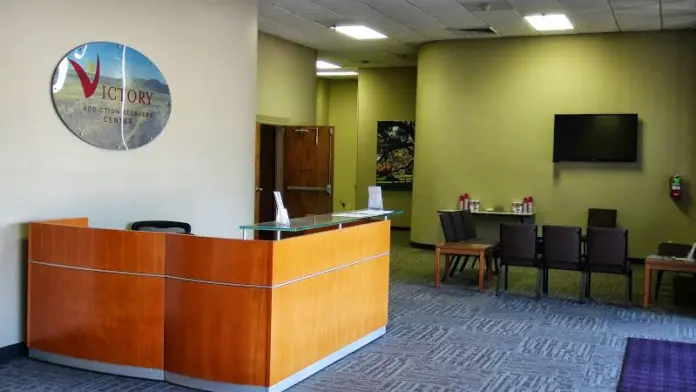
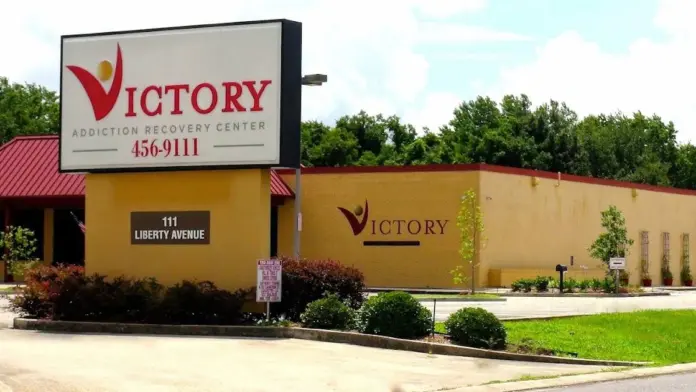
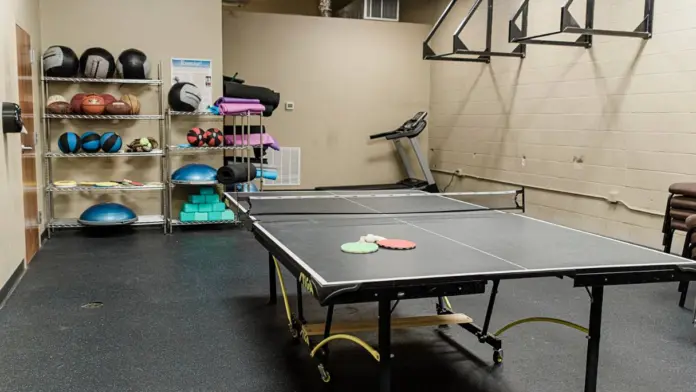
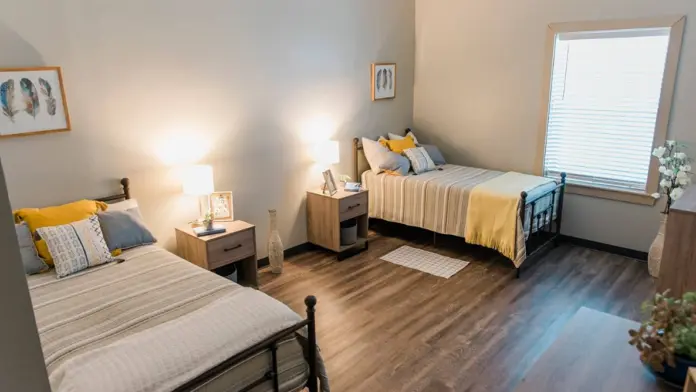
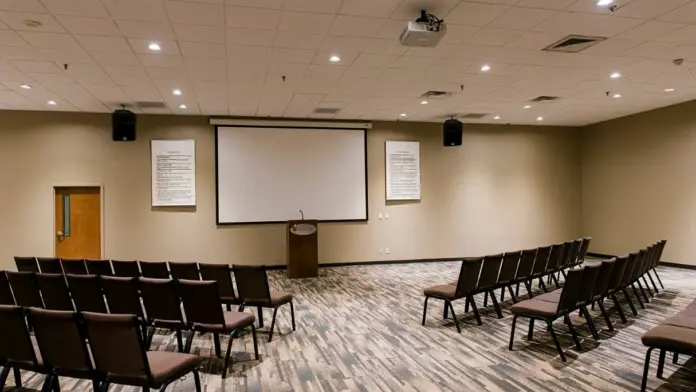
Location
Accepted Insurance



Other Forms of Payment
Private insurance refers to any kind of healthcare coverage that isn't from the state or federal government. This includes individual and family plans offered by an employer or purchased from the Insurance Marketplace. Every plan will have different requirements and out of pocket costs so be sure to get the full details before you start treatment.
Self-pay involves paying for treatment out of your own pocket. You can use savings or credit, get a personal loan, or receive help from family and friends to fund your treatment. If you don't have insurance or your insurance plan doesn't cover a specific program, self-pay can help ensure you still get the care you need.
Addiction Treatments
Levels of Care
Treatments
The goal of treatment for alcoholism is abstinence. Those with poor social support, poor motivation, or psychiatric disorders tend to relapse within a few years of treatment. For these people, success is measured by longer periods of abstinence, reduced use of alcohol, better health, and improved social functioning. Recovery and Maintenance are usually based on 12 step programs and AA meetings.
While each drug rehab in Louisiana offers unique elements, recovery support often follows a similar pattern. Detox is followed by inpatient and/or outpatient care, then aftercare support is provided once the participant completes the initial program.
Many of those suffering from addiction also suffer from mental or emotional illnesses like schizophrenia, bipolar disorder, depression, or anxiety disorders. Rehab and other substance abuse facilities treating those with a dual diagnosis or co-occurring disorder administer psychiatric treatment to address the person's mental health issue in addition to drug and alcohol rehabilitation.
A combined mental health and substance abuse rehab has the staff and resources available to handle individuals with both mental health and substance abuse issues. It can be challenging to determine where a specific symptom stems from (a mental health issue or an issue related to substance abuse), so mental health and substance abuse professionals are helpful in detangling symptoms and keeping treatment on track.
Opioid rehabs specialize in supporting those recovering from opioid addiction. They treat those suffering from addiction to illegal opioids like heroin, as well as prescription drugs like oxycodone. These centers typically combine both physical as well as mental and emotional support to help stop addiction. Physical support often includes medical detox and subsequent medical support (including medication), and mental support includes in-depth therapy to address the underlying causes of addiction.
Programs


Clinical Services
Cognitive Behavioral Therapy (CBT) is a therapy modality that focuses on the relationship between one's thoughts, feelings, and behaviors. It is used to establish and allow for healthy responses to thoughts and feelings (instead of unhealthy responses, like using drugs or alcohol). CBT has been proven effective for recovering addicts of all kinds, and is used to strengthen a patient's own self-awareness and ability to self-regulate. CBT allows individuals to monitor their own emotional state, become more adept at communicating with others, and manage stress without needing to engage in substance abuse.
Dialectical Behavior Therapy (DBT) is a modified form of Cognitive Behavioral Therapy (CBT), a treatment designed to help people understand and ultimately affect the relationship between their thoughts, feelings, and behaviors. DBT is often used for individuals who struggle with self-harm behaviors, such as self-mutilation (cutting) and suicidal thoughts, urges, or attempts. It has been proven clinically effective for those who struggle with out-of-control emotions and mental health illnesses like Borderline Personality Disorder.
Group therapy is any therapeutic work that happens in a group (not one-on-one). There are a number of different group therapy modalities, including support groups, experiential therapy, psycho-education, and more. Group therapy involves treatment as well as processing interaction between group members.
In individual therapy, a patient meets one-on-one with a trained psychologist or counselor. Therapy is a pivotal part of effective substance abuse treatment, as it often covers root causes of addiction, including challenges faced by the patient in their social, family, and work/school life.
If you are struggling with motivation to change, motivational interviewing is designed to help. This method typically involves one or two sessions with a therapist. The technique helps you understand your motivations and empowers you to make changes to reach your goals.
Trauma therapy addresses traumatic incidents from a client's past that are likely affecting their present-day experience. Trauma is often one of the primary triggers and potential causes of addiction, and can stem from child sexual abuse, domestic violence, having a parent with a mental illness, losing one or both parents at a young age, teenage or adult sexual assault, or any number of other factors. The purpose of trauma therapy is to allow a patient to process trauma and move through and past it, with the help of trained and compassionate mental health professionals.
Couples therapy focuses on helping the couple develop skills that will improve the relationship. These include communication, conflict resolution, and anger management. Couples also identify dysfunctional behaviors and work to eliminate them.
Victory feels a strong support system is a very important part of recovery. “Family Week” is a feature of their inpatient program open to friends and family members of clients. Films, lectures, and group discussions are used to educate about addiction and how to support loved ones in recovery. Family groups will be scheduled by the treatment team as needed.
An integral part of addiction rehab in Louisiana is life skills training. This training equips you for the daily tasks you'll need to successfully navigate post treatment. Training may include employment coaching, stress management techniques, financial budgeting, and interpersonal skill development.
Examples of experiential therapy in Louisiana include equine/animal therapy, psychodrama, adventure therapy, and music therapy. These interventions focus on the exploration of emotions and how the client perceives the world.
Amenities
-
Yoga Studio
-
Residential Setting
-
Private Rooms
Accreditations

The Commission on Accreditation of Rehabilitation Facilities (CARF) is a non-profit organization that specifically accredits rehab organizations. Founded in 1966, CARF's, mission is to help service providers like rehab facilities maintain high standards of care.
CARF Accreditation: Yes

The Joint Commission, formerly known as JCAHO, is a nonprofit organization that accredits rehab organizations and programs. Founded in 1951, the Joint Commision's mission is to improve the quality of patient care and demonstrating the quality of patient care.
Joint Commission Accreditation: Yes
Contact Information
111 Liberty Avenue
Lafayette, LA 70508








